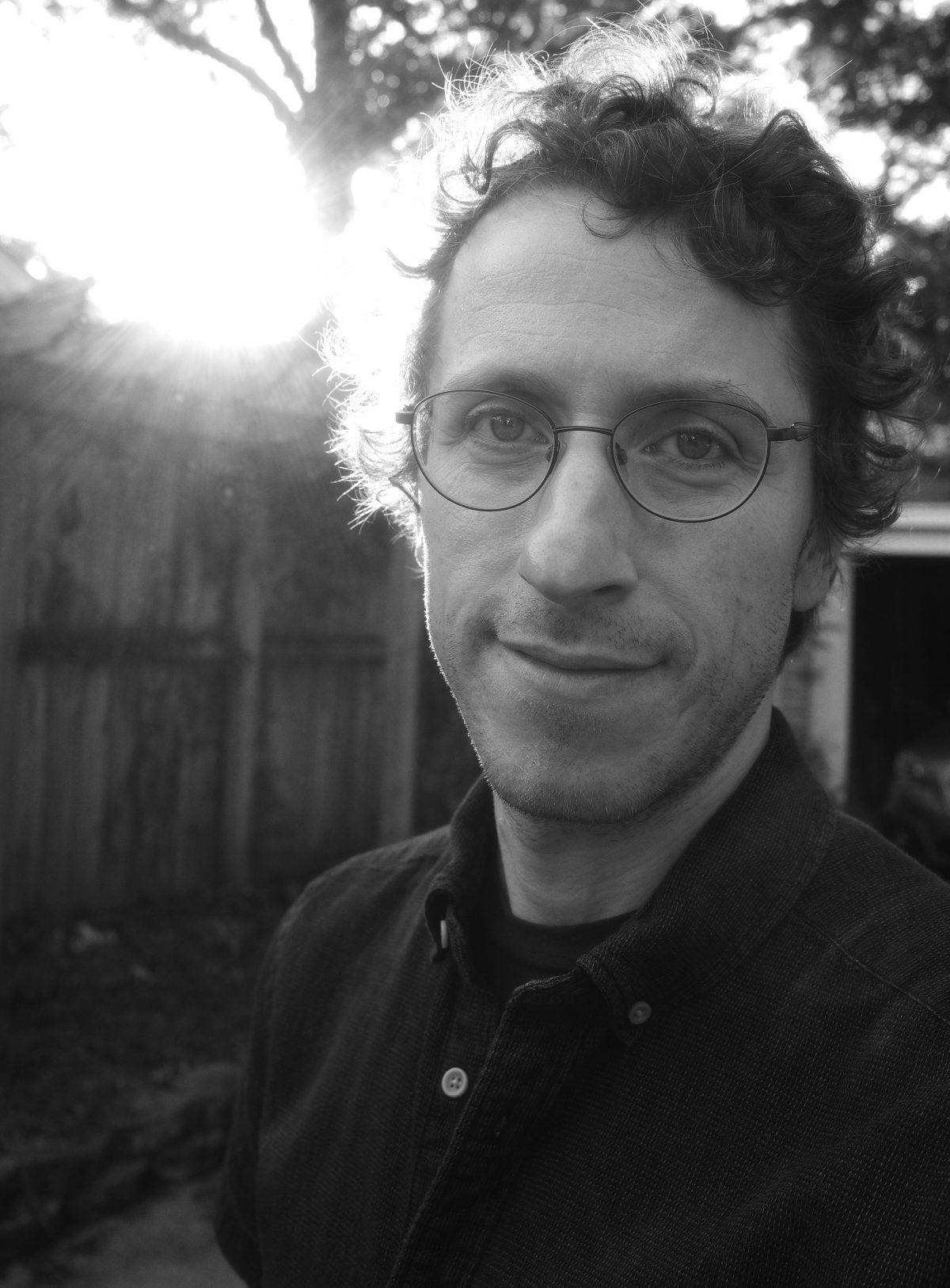Director David Goodman is an associate professor of film and television production at University of Memphis. His new film, Adopting Greyhounds, premieres at Indie Memphis on Sunday, November 17th, at 5 p.m. (Get tickets here.)
I spoke with Goodman about the film, dogs, and editing. Our conversation has been lightly edited for length and clarity.

Tell me how this project got started.
I always meant to catch a race over the years. I never got a chance to, and some folks that I knew had come through the area and filmed one of the races on 8mm [film]. I remember seeing that and thinking it looked neat. Then I heard it was closing, and that piqued my interest, because in making the kind of documentary films that I make, it’s hard to find an ending sometimes, to find a way for everything to feel like it comes to a conclusion. The idea of racing ending really got me. I started my whole train of thinking in terms of this being a documentary. So I reached out to some people, and it took quite a number of months to get in touch with some of the folks who ran the adoption center. I really wanted to focus on what happens to the greyhounds after they finish racing. So I wanted to look at racing from across the road, so to speak, because the adoption organization was really across the street from Southland Racing. So I reached out to them and I just started a relationship and began filming. I thought greyhounds were cool dogs. I’ve seen a lot of people with adopted greyhounds in Memphis, and it sparked my interest that this aspect of the Mid-South was going to be gone.
Do you have dogs?
I’m a dog owner. I’ve almost always had a dog, and while filming this documentary, two stray pit bull/boxer mix dogs turned up in our driveway, and we ended up keeping them. I actually was considering adopting a greyhound, but it just so happened that some other dogs showed up that ended up living with me, my wife, and family.
How long did you work on it?
I started filming in February 2022 and filmed throughout the year until January 2023. Racing was set to end in December 2022. Then I stuck around to film a little bit of the final weeks, as well. So, a year of filming, and basically a year of editing the footage down. The way that I approach documentaries, or try to, is from a more observational perspective. I go into a space, and I just film the processes and conversations that people have. I try to avoid sit-down interviews or at least I did in this documentary. What would naturally happen is people would speak to me while I was holding the camera, or they would speak to one another. And in that way, I try to capture more naturalistic scenes that happen in a space, and try to convey the story in that way, rather than creating an interview-driven narrative.
It’s kind of a Les Blank-like technique, it seems.
Oh, yes, that’s right. Les Blank, Frederick Wiseman, and a lot of my mentors, David Appleby, who did plenty of work in interview-based documentaries, but his earlier films followed this more observational approach.
It’s a direct cinema, ’60s kind of vibe.
Yes, it’s definitely an approach that you don’t see as often these days.
Why do you think that is?
I think it takes less time to do that. You can go in and interview someone, and you can really shape a narrative more clearly. With a more observational or direct cinema approach, I think the experience can be that there are more questions for a viewer. A lot of popular modern documentaries are constantly sort of answering questions very explicitly, with people speaking the answers. Whereas, I think it’s more fun to watch a film and kind of try to figure out a world and be dropped into it without exposition and too much set up. It’s just more of a challenge, I would say, to piece together things, and there’s more mystery to it.
Did you edit this yourself?
I did, yes.
That’s where it gets really daunting, in that phase especially, because you end up with this pile of undifferentiated footage, and you’re like, ‘Wow I could continue to put this together in different combinations until the heat death of the universe!’ It’s hard to know when you’ve got it right.
It really is. And with documentaries, the editing becomes the writing of the documentary in a lot of ways. There’s prep, and there’s consideration of structure when filming, but nothing ever goes exactly as planned. New things, unexpected things, happen, and as the person out there in the field, filming, I inevitably get attached to stuff. You gotta wrestle with yourself as the editor. Definitely on this project, I felt the need to begin thinking maybe for the next one I’ll get an editor.
Let me ask you about greyhounds. I get the impression that they’re very skittish dogs.
They’re much like any other dog. They have certain different kinds of ailments than other dogs. Their skin is very delicate, and the way they’re built, they’re prone to certain injuries. All of the greyhounds I encountered were very friendly.
What opinion did you come away with about racing?
You know, that’s a good question. It’s one of those questions I avoid. I tried to not have an opinion, and I felt like I had the luxury of not having to form an opinion because I was really focused on the adoptions and where these dogs go from here. I remained as unbiased as I could, and I just wanted depict the things I saw and tried to avoid the politics of the issue and just look at the dogs and all the work that goes into transitioning them to the next phase of their lives.
